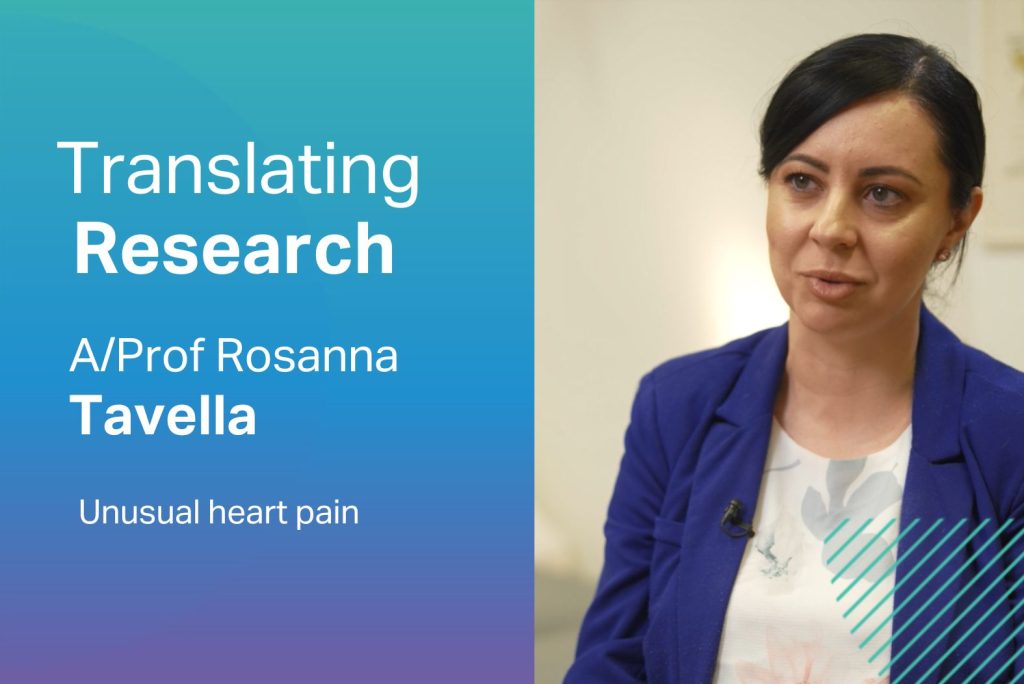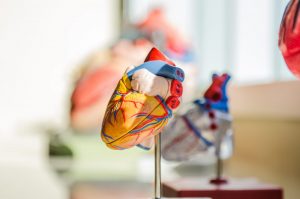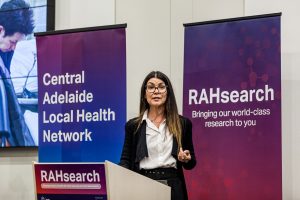Video series: Translating Research
In this episode, we hear about research that is helping patients with a type of chest pain known as angina.
We learn that while most angina results from physical blockages in small blood vessels supplying the heart, in about one third of cases no identifiable physical change can be detected with standard imaging. Importantly,
- it’s not immediately clear what causes pain symptoms when there is no obvious blockage in heart blood vessels
- patients with this sort of pain and no blockages have what is referred to as ‘sensitive’ heart arteries
- sensitive heart arteries can become reactive or stiffen up in response to changes in blood flow or other stimuli
- innovative detection methods and treatments are helping these patients maintain a high quality of life.
About the researcher
Associate Professor Rosanna Tavella is clinical data manager at the Basil Hetzel Institute, The Queen Elizabeth Hospital.
Watch and subscribe
View all Translating Research episodes on YouTube.
Subscribe to our YouTube channel to get notified about upcoming episodes.
Share on social
Do you know someone who would find this video useful? Click a button below to share it with your network on social media.
Feedback
We would love to know what you think of this video series or if you have an idea about a topic for a future episode, we’d love to hear from you.





